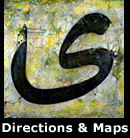|
In the last two decades, the implosion of African economies under the burden of debt, the negative repercussions of the structural adjustment programs, the crisis of legitimacy, civil wars, and the collapse of some states resulted in a serious health crisis across the continent. Newly emerging diseases, such as Ebola virus and HIV/AIDS, killed and disabled millions. Some "old diseases," such as yellow fever, tuberculosis, and polio, have reappeared. Malaria, cholera, and meningitis continue to kill thousands. In many countries, the medical infrastructure has collapsed, while an increasing number of physicians and nurses have migrated to more hospitable places. Stigmatization of the affected people has compounded on previous social and racial discrimination, and has affected the implementation of national and international public health programs. This workshop examines the impact of disease on African societies, and the role played by various healing practices. It emphasizes the social and cultural contexts of medicine, and is interdisciplinary, involving the fields of history, sociology, anthropology, and biology. Of particular interest is to explore how the history of the colonial public health system may shed light on current health problems in Africa, as well as among minorities in America. |
![]()
Home :: Speakers :: Program :: Sponsors :: Directions :: Image Credits
![]()





